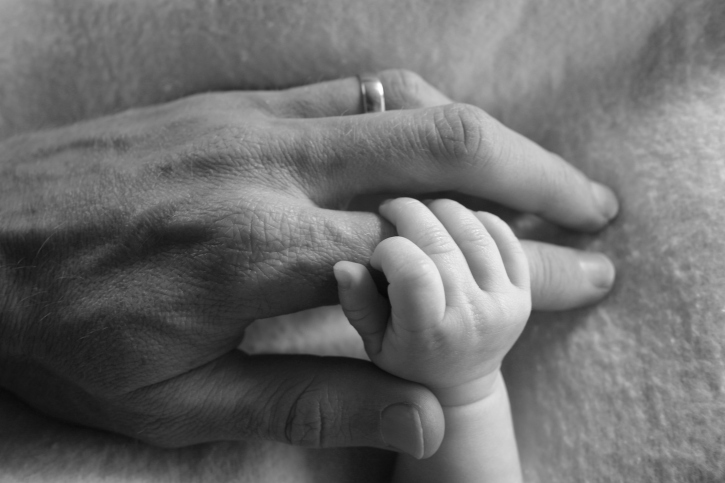October 8, 2013 – 10:45 am
If you live in or around Washington, DC you may want to plan to visit Georgetown University this evening for what is sure to be a fantastic lecture by NOM friend and What is Marriage? co-author Ryan T. Anderson. The title of the lecture is "Marriage as a Social Justice Issue."
Here is the description from the event page:
 What is marriage? Why does marriage matter? What would be the consequences of redefining marriage? These are just some of the questions Ryan T. Anderson will address in his lecture on Marriage as a Social Justice Issue. Anderson is the William E. Simon Fellow at the Heritage Foundation and co-author of the book What Is Marriage? Man and Woman: A Defense, cited by Supreme Court Justice Samuel Alito twice in his dissenting opinion on the Defense of Marriage Act (DOMA) case. Anderson makes a secular case for marriage without appeals to theology, revelation or morality.
What is marriage? Why does marriage matter? What would be the consequences of redefining marriage? These are just some of the questions Ryan T. Anderson will address in his lecture on Marriage as a Social Justice Issue. Anderson is the William E. Simon Fellow at the Heritage Foundation and co-author of the book What Is Marriage? Man and Woman: A Defense, cited by Supreme Court Justice Samuel Alito twice in his dissenting opinion on the Defense of Marriage Act (DOMA) case. Anderson makes a secular case for marriage without appeals to theology, revelation or morality.
The lecture will be in McCarthy Hall in the McShain Large Conference Room (37th and O St. N.W.) from 7:00 - 9:00 PM. It is free and open to the public.
RSVP on Facebook event page here.
October 8, 2013 – 10:30 am
Over at Public Discourse, Professor Mark Regnerus reports on the important new study from Canada which we told you about yesterday.
Regnerus shares his opinions on the research by Douglas Allen published in the Review of the Economics of the Household last week:
 Every study has its limitations, and this one does too.... [but] its limitations are modest in comparison to its remarkable and unique strengths—a rigorous and thorough analysis of a massive, nationally-representative dataset from a country whose government has long affirmed same-sex couples and parenting. It is as close to an ideal test as we’ve seen yet.
Every study has its limitations, and this one does too.... [but] its limitations are modest in comparison to its remarkable and unique strengths—a rigorous and thorough analysis of a massive, nationally-representative dataset from a country whose government has long affirmed same-sex couples and parenting. It is as close to an ideal test as we’ve seen yet.
The study’s publication continues the emergence of new, population-based research in this domain, much of which has undermined scholarly and popular claims about equivalence between same-sex and opposite-sex households echoed by activists and reflected in recent legal proceedings about same-sex marriage.
Read Professor Regnerus' full piece here.
October 7, 2013 – 10:55 am
The famous line from founding father John Adams comes to mind with the publication of yet another study - published in a peer reviewed academic journal - that demonstrates the negative outcomes for children when they are denied the love of either a mother or a father. Maggie Gallagher reports on the study over at NRO:
 Using Canadian census data, a very large and therefore representative database, Canadian professor Douglas Allen of Simon Frazier University finds that children raised by intact, married biological parents do better than children raised by same-sex couples.
Using Canadian census data, a very large and therefore representative database, Canadian professor Douglas Allen of Simon Frazier University finds that children raised by intact, married biological parents do better than children raised by same-sex couples.
So once again science confirms the truth about the importance of marriage that the wisdom of the ages and common sense have always told us: marriage matters because kids need and deserve a mom and a dad. Redefining marriage, though, means that kids as a norm will be denied at least one of these parents' vital role in their lives - and there are consequences, whether we like it or not. Facts are stubborn things.
August 28, 2013 – 12:44 pm
Same-sex marriage advocates will tell you "love is love". That there is zero difference between men and women, apart from sexual organs. But the differences between genders are far more than what meets the eye. Scientifically, our brains show major genetic differences as well.
Mothers and fathers play unique roles in the lives of their children because ultimately, they are complementary beings.
There is a growing number of people in our nation today who think that sex (that is, maleness and femaleness) is not an objective biological reality, but rather a social construct.
 Those who reject the objectivity of sex will often say that although male and female bodies may have some differences between them, our brains are just the same. One man, who is currently raising three “genderless children,” argued, “If you really want to get to know someone, you don’t ask what’s between their legs.”
Those who reject the objectivity of sex will often say that although male and female bodies may have some differences between them, our brains are just the same. One man, who is currently raising three “genderless children,” argued, “If you really want to get to know someone, you don’t ask what’s between their legs.”
As it turns out, male and female brains are biologically different.
In 2004 an all-star team of fourteen neuroscientists, from the University of California, the University of Michigan, and Stanford University, published findings showing that male and female brains are genetically different.
The differences between male and female brains affect many aspects of our behavior, including memory, emotion, vision and hearing, how we handle stress… and even the toys we like to play with.
In 2002, Melissa Hines of City University London, and Gerianne M. Alexander of Texas A&M University decided to conduct experiments on vervet monkeys, one of our closest biological cousins. They found that the monkeys showed “sex differences in toy preferences similar to those documented previously in children.” The boy monkeys typically preferred playing with cars and balls, while the female monkeys preferred playing with dolls and pots. (And they didn’t have parents or toy catalogues telling them which they should prefer.) -MattFradd.com
New research reveals a timeless truth:
 "In our study, the wives thought father involvement with the kids and participation in household work are all inter-related and worked together to improve marital quality," said Adam Galovan, lead author of the study and a researcher at the University of Missouri, in Columbia. "They think being a good father involves more than just doing things involved in the care of children."
"In our study, the wives thought father involvement with the kids and participation in household work are all inter-related and worked together to improve marital quality," said Adam Galovan, lead author of the study and a researcher at the University of Missouri, in Columbia. "They think being a good father involves more than just doing things involved in the care of children."
... Doing household chores and being engaged with the children seem to be important ways for husbands to connect with their wives, and that connection is related to better relationships, Galovan explained.
The research was recently published in the Journal of Family Issues.
... Men and women differed in how they reported marital quality. For wives, the father-child relationship and father involvement was most important, followed by satisfaction with how the household work was accomplished.
For husbands, satisfaction with the division of family work came first, followed by their wife's feelings about the father-child relationship, and then the degree of involvement the dad had with his children. (WebMD)
Today Health:
Over the past decade the number of births involving surrogacy with donor eggs and sperm has surged. What, experts wondered, does this mean for the mental and emotional health of the growing number of kids who may or may not know the truth about their distinctive origins?
 A team of British researchers, led by Susan Golombok, a professor of family research and director of the Centre for Family Research at the University of Cambridge, has found that children born with the help of a surrogate may have more adjustment problems – at least at age 7 – than those born to their mother via donated eggs and sperm.
A team of British researchers, led by Susan Golombok, a professor of family research and director of the Centre for Family Research at the University of Cambridge, has found that children born with the help of a surrogate may have more adjustment problems – at least at age 7 – than those born to their mother via donated eggs and sperm.
Their results, published in the June issue of the Journal of Child Psychology and Psychiatry, suggest that it’s more difficult for youngsters to deal with the idea that they grew in an unrelated woman’s womb, than with the concept that they are not biologically related to one or both parents.
With the number of births involving a surrogate or donated sperm or eggs on the rise, this issue may become increasingly relevant.
The latest statistics from the American Society for Reproductive Medicine (ASRM) show that the number of children who were created with a donated egg rose more than 30 percent from 7,284 in 2004 to 9,541 in 2011, while the number of births involving a surrogate jumped more than 200 percent, from 530 in 2004 to 1,179 in 2011. No one knows how many births have resulted from sperm donations, but estimates range from 30,000 to 60,000 per year, according to a New York Times report.
A new study in the Journal of Epidemiology followed 6.5 million Danish persons for nearly 30 years (for a total of 112.5 million person-years) looking at how living arrangements (being single, cohabiting, married, widowed or in a same-sex union) affected their health outcomes.
 From the official abstract:
From the official abstract:
"[Hazard Ratios] for overall mortality changed markedly over time, most notably for persons in same-sex marriage. In 2000–2011, opposite-sex married persons (reference, HR = 1) had consistently lower mortality than persons in other marital status categories in women (HRs 1.37–1.89) and men (HRs 1.37–1.66). Mortality was particularly high for same-sex married women (HR = 1.89), notably from suicide (HR = 6.40) and cancer (HR = 1.62), whereas rates for same-sex married men (HR = 1.38) were equal to or lower than those for unmarried, divorced and widowed men. Prior marriages (whether opposite-sex or same-sex) were associated with increased mortality in both women and men (HR = 1.16–1.45 per additional prior marriage)."
The conclusion of the authors:
"Our study provides a detailed account of living arrangements and their associations with mortality over three decades, thus yielding accurate and statistically powerful analyses of public health relevance to countries with marriage and cohabitation patterns comparable to Denmark’s. Of note, mortality among same-sex married men has declined markedly since the mid-1990s and is now at or below that of unmarried, divorced and widowed men, whereas same-sex married women emerge as the group of women with highest and, in recent years, even further increasing mortality."
Commentary from the English Manif blog:
"During 2000 to 2011, Danish male-female married couples were the healthiest and least likely to die at various ages compared with individuals who were unmarried, divorced or widowed. In contrast, same-sex married men in Denmark were no healthier than unmarried men. Same-sex married women had much higher mortality rates than other women, including the ones who were unmarried, divorced or widowed. There was no apparent marriage “benefit” in terms of better health or longer life for these same-sex married women.
While this is just one study that needs to be supplemented by more research, it does suggest that the health benefits of marriage may be unique to the male-female union. Governments may try to legislate a revised version of “marriage,” but they cannot legislate the health and longevity benefits that come from a man marrying a woman."
Glenn Stanton at CitizenLink:
The American Academy of Pediatrics (AAP) has issued what appears to be a politically motivated statement suggesting that children raised by same-sex parents do just fine. In fact, the AAP goes so far as to suggest that children are more affected by the health of the relationship between the people raising them than by whether they are being raised by their own mother and father.
...To be clear, this recent announcement is not science, but propaganda rooted in social activism regarding the family, which is the foundational unit of humanity. That such a credentialed and well-known organization would play politics with this issue should grieve all of those who are committed to the integrity of science when it comes to the future of our children. Their well-being and health is far too important an issue to play politics with, especially of such a radical nature.
The AAP would be well-advised to stick to what the reliable and time-tested body of research tells us about what kinds of families promote the robust array of child-health: a family where children are raised by their mother and father who are in the midst of a healthy marriage.
A statement by the American College of Pediatricians in response to the AAP:
“The American College of Pediatricians reaffirms that the intact, functional family consisting of a married (female) mother and (male) father provides the best opportunity for children. The College, therefore, disputes the American Academy of Pediatrics’ (AAP) claim that supporting same-sex unions promotes the “well-being of children.” In its newly released statement, “Promoting the Well-Being of Children Whose Parents Are Gay or Lesbian,” the AAP ignores important research on risks to children in favor of the wants of adults.
“The College does not support the alteration of this time-honored and proven standard to conform to pressures from “politically correct” groups. No one concerned with the well-being of children can reasonably ignore the evidence for maintaining the current standard, nor can they or we ignore the equally strong evidence that harm to children can result if the current standards are rejected,” says Den Trumbull, MD, President of the American College of Pediatricians. “The AAP ignores generations of evidence of health risks to children in advocating for the legality and legitimacy of same-sex marriage and child-rearing.”
Mark Regnerus reacts to the news of the AAP's political decision to endorse SSM:
I’m neither surprised at the statement by the American Academy of Pediatrics endorsing gay marriage nor at its timing. Whether the statement adequately captures the consensus of pediatricians across the country is, of course, unknown. The report points out the strengths and weaknesses of the social science in this area, and notes correctly that causal arguments here are very difficult to make. The science on same-sex parenting remains comparatively new, unable to keep up with political and legal developments. But those few population-based studies that exist — that map what’s going on across the country — seem to foster skepticism about moving quickly or universally to deny children their right to a mom and a dad. It’s not a popular position, of course. In the end, we all want children to thrive. Many organizations and scholars assert that same-sex marriage is a step toward that end, ensuring household stability. Others remain skeptical, and wonder whether this isn’t more about parents’ wishes than those of children.
Ryan Anderson of Heritage (and co-author of What is Marriage? One Man, One Woman: A Defense) writes in CNN:
"...So what about that release from the American Academy of Pediatrics? Two eminent political scientists, Leon Kass (a professor at University of Chicago) and Harvey Mansfield (a professor at Harvard), filed an amicus brief with the Supreme Court cautioning against accepting politicized science: "Claims that science provides support for constitutionalizing a right to same-sex marriage must necessarily rest on ideology. Ideology may be pervasive in the social sciences, especially when controversial policy issues are at stake, but ideology is not science."
Kass and Mansfield urge the court not to redefine marriage based on new, inconclusive research. The academic studies on same-sex parenting purporting to show "no differences" are, they argue, "subject to severe constraints arising from limited data" and a lack of "replicable experiments." The professors contend:
"Even if same-sex marriage and child rearing by same-sex couples were far more common than they now are, large amounts of data collected over decades would be required before any responsible researcher could make meaningful scientific estimates of the effects."
Although we still have much to learn about the impact of same-sex parenting, we do know quite a bit about marriage and child well-being. We have decades of rigorous social science data confirming that children do best with a married mother and father.
February 23, 2013 – 9:00 am
Reprinted from The Family in America: A Journal of Public Policy:
 Although the American Psychological Association (APA) boasts scholarly objectivity, the social-science guild has for years conducted studies that generate the results—from the alleged benefits of the “good” divorce to the virtues of homosexuality—that progressive activists’ itching ears want to hear. Consequently, it often falls to one brave solider to challenge the groupthink.
Although the American Psychological Association (APA) boasts scholarly objectivity, the social-science guild has for years conducted studies that generate the results—from the alleged benefits of the “good” divorce to the virtues of homosexuality—that progressive activists’ itching ears want to hear. Consequently, it often falls to one brave solider to challenge the groupthink.
Indeed, Mark Regnerus of the University of Texas has done exactly that, conducting the first methodologically rigorous study of homosexual parenting, the latest cause of American elites. Exposing the discredited studies hailed by the APA, the sociologist establishes that children raised by homosexual parents—like all children raised by anything but a married mother and father—suffer risks that should not be overlooked or minimized.
Unique to Regnerus’s study is the data source: his New Family Structures Study, a new research instrument that yielded a data sample of 2,988 randomly selected Americans between the ages 18 to 39, including 175 adults with lesbian mothers and 73 with homosexual fathers. The cross-sectional study queried respondents about their social and economic behaviors, health behaviors, family of origin, and current relationships. Based upon their answers, the lone Texan quantified how the 248 adult children who reported parental homosexual behavior prior to age 18 differed from their peers from six other family-of-origin types.
December 10, 2012 – 10:00 am
Paul Bedard of The Washington Examiner:
 Countering previous studies that found little difference between kids of same sex couples and those in a traditional marriage, a new report reveals that children of gay parents are 35 percent less likely to make normal progress in school that those living with their own married parents.
Countering previous studies that found little difference between kids of same sex couples and those in a traditional marriage, a new report reveals that children of gay parents are 35 percent less likely to make normal progress in school that those living with their own married parents.
Based on the largest sample to date for such a study, the new work from three economists raises anew the impact state laws approving of same sex marriage have on children.
The new study provided to Secrets said: "Children of same sex couples are significantly less likely to make normal progress through school than other children: 35% less likely than the children of heterosexual married parents, 23% less likely than the children of never married mothers, and 15% less likely than the children of cohabiting parents."
The study also looked at similar scholarly work that had determined no difference in children of same sex and traditional marriages. The authors said that those studies filtered the sample of children to get their result.
December 8, 2012 – 9:00 am
A remote where homosexuality does not exist challenges postmodern western ideas of sex, love, marriage and babies:
 "Barry and Bonnie Hewlett had been studying the Aka and Ngandu people of central Africa for many years before they began to specifically study the groups' sexuality. As they reported in the journal African Study Monographs, the married couple of anthropologists from Washington State University "decided to systematically study sexual behavior after several campfire discussions with married middle-aged Aka men who mentioned in passing that they had sex three or four times during the night. At first [they] thought it was just men telling their stories, but we talked to women and they verified the men's assertions."
"Barry and Bonnie Hewlett had been studying the Aka and Ngandu people of central Africa for many years before they began to specifically study the groups' sexuality. As they reported in the journal African Study Monographs, the married couple of anthropologists from Washington State University "decided to systematically study sexual behavior after several campfire discussions with married middle-aged Aka men who mentioned in passing that they had sex three or four times during the night. At first [they] thought it was just men telling their stories, but we talked to women and they verified the men's assertions."
In turning to a dedicated study of sex practices, the Hewletts formally confirmed that the campfire stories were no mere fish tales. Married Aka and Ngandu men and women consistently reported having sex multiple times in a single night. But in the process of verifying this, the Hewletts also incidentally found that homosexuality and masturbation appeared to be foreign to both groups.
... The finding with regard to homosexuality is perhaps not that surprising. As the Hewletts note, other researchers have documented cultures where homosexuality appears not to exist. If homosexual orientation has a genetic component to it -- and there is increasing evidence that it does, in many cases -- then it would not be surprising that this complex human trait (one that involves non-procreative efforts) would be found in some populations but not others.
... But, the Hewletts suggest, "The bonobo view may apply to Euro-Americans (plural), but from an Aka or Ngandu viewpoint, sex is linked to reproduction and building a family." Where sex is work, sex may just work differently." -- The Atlantic
What is marriage? Why does marriage matter? What would be the consequences of redefining marriage? These are just some of the questions Ryan T. Anderson will address in his lecture on Marriage as a Social Justice Issue. Anderson is the William E. Simon Fellow at the Heritage Foundation and co-author of the book What Is Marriage? Man and Woman: A Defense, cited by Supreme Court Justice Samuel Alito twice in his dissenting opinion on the Defense of Marriage Act (DOMA) case. Anderson makes a secular case for marriage without appeals to theology, revelation or morality.


 Every study has its limitations, and this one does too.... [but] its limitations are modest in comparison to its remarkable and unique strengths—a rigorous and thorough analysis of a massive, nationally-representative dataset from a country whose government has long affirmed same-sex couples and parenting. It is as close to an ideal test as we’ve seen yet.
Every study has its limitations, and this one does too.... [but] its limitations are modest in comparison to its remarkable and unique strengths—a rigorous and thorough analysis of a massive, nationally-representative dataset from a country whose government has long affirmed same-sex couples and parenting. It is as close to an ideal test as we’ve seen yet. Using Canadian census data, a very large and therefore representative database, Canadian professor Douglas Allen of Simon Frazier University finds that children raised by intact, married biological parents do better than children raised by same-sex couples.
Using Canadian census data, a very large and therefore representative database, Canadian professor Douglas Allen of Simon Frazier University finds that children raised by intact, married biological parents do better than children raised by same-sex couples.
 "In our study, the wives thought father involvement with the kids and participation in household work are all inter-related and worked together to improve marital quality," said Adam Galovan, lead author of the study and a researcher at the University of Missouri, in Columbia. "They think being a good father involves more than just doing things involved in the care of children."
"In our study, the wives thought father involvement with the kids and participation in household work are all inter-related and worked together to improve marital quality," said Adam Galovan, lead author of the study and a researcher at the University of Missouri, in Columbia. "They think being a good father involves more than just doing things involved in the care of children." A team of British researchers, led by Susan Golombok, a professor of family research and director of the Centre for Family Research at the University of Cambridge, has found that children born with the help of a surrogate may have more adjustment problems – at least at age 7 – than those born to their mother via donated eggs and sperm.
A team of British researchers, led by Susan Golombok, a professor of family research and director of the Centre for Family Research at the University of Cambridge, has found that children born with the help of a surrogate may have more adjustment problems – at least at age 7 – than those born to their mother via donated eggs and sperm. From the official
From the official  Although the American Psychological Association (APA) boasts scholarly objectivity, the social-science guild has for years conducted studies that generate the results—from the alleged benefits of the “good” divorce to the virtues of homosexuality—that progressive activists’ itching ears want to hear. Consequently, it often falls to one brave solider to challenge the groupthink.
Although the American Psychological Association (APA) boasts scholarly objectivity, the social-science guild has for years conducted studies that generate the results—from the alleged benefits of the “good” divorce to the virtues of homosexuality—that progressive activists’ itching ears want to hear. Consequently, it often falls to one brave solider to challenge the groupthink. A new study of Canadian women finds that pregnant women who are married suffer less partner abuse, substance abuse, and post-partum depression than women who are cohabitating or single.
A new study of Canadian women finds that pregnant women who are married suffer less partner abuse, substance abuse, and post-partum depression than women who are cohabitating or single. Countering previous studies that found little difference between kids of same sex couples and those in a traditional marriage, a new report reveals that children of gay parents are 35 percent less likely to make normal progress in school that those living with their own married parents.
Countering previous studies that found little difference between kids of same sex couples and those in a traditional marriage, a new report reveals that children of gay parents are 35 percent less likely to make normal progress in school that those living with their own married parents.




